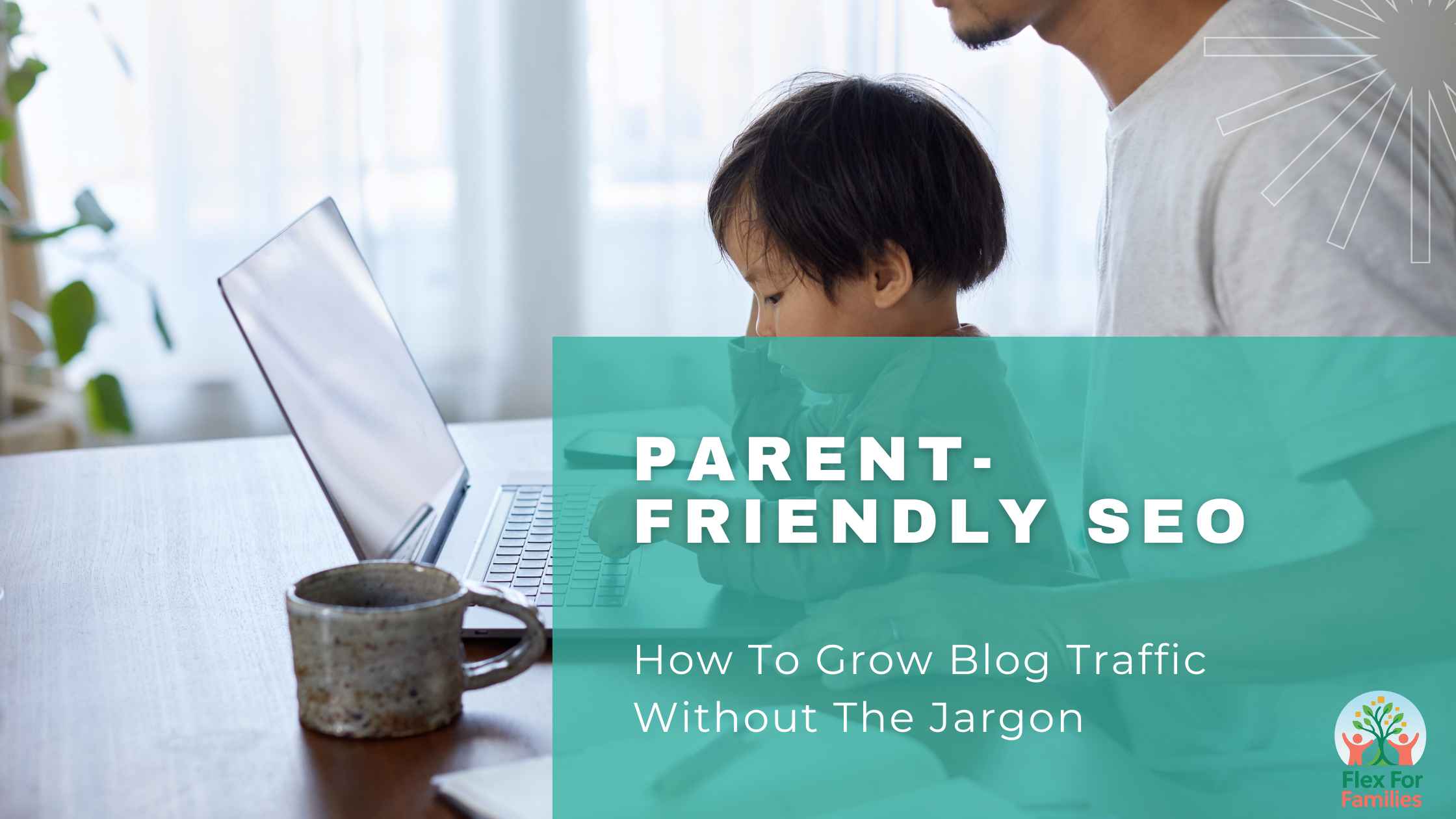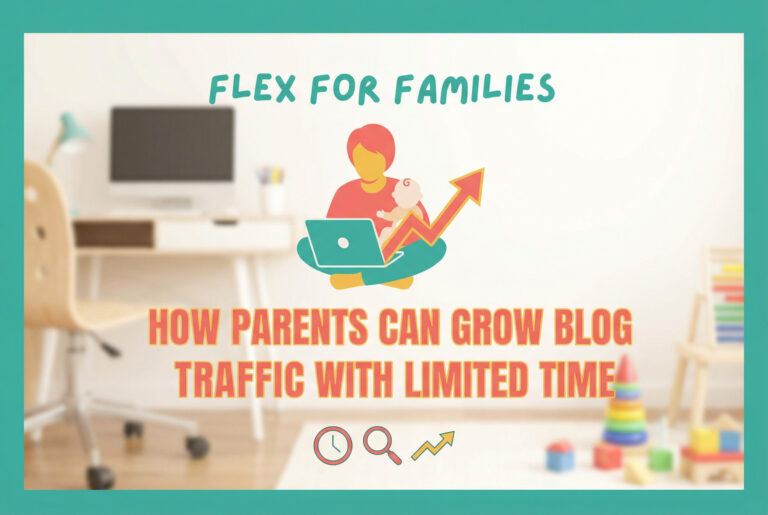Why SEO Sounds Scary (But Really Isn’t)
If you’ve ever heard the term “SEO” and thought it sounded like something only tech pros or full-time marketers could understand, you’re not alone. Most parents I talk to feel the same at first—it feels like a mix of secret codes and complicated rules.
But here’s the truth: SEO (search engine optimization) is just about making your blog easy for people to find when they Google a question. Think of it like teaching your kids how to tidy up. You’re not changing who they are, you’re just helping others see the good stuff without stepping over Legos.
What SEO Actually Means (Simple Definition)
SEO is short for Search Engine Optimization. In plain language: it’s how you help Google (and other search engines) understand your blog so it can show your posts to the right people.

- Imagine your blog post is a recipe card.
- Without SEO, it’s stuffed in the back of the drawer.
- With SEO, it’s neatly labelled in a family cookbook so anyone can flip right to it.
Here’s a quick reference if you’d like to dive deeper later: Wikipedia’s intro to SEO.
Why SEO Matters for Parent Bloggers
As a parent blogger, your time is precious. You don’t want to pour energy into posts only for them to disappear into the internet void.

SEO helps you:
- Bring in steady traffic → even on days when you’re too busy with school runs or laundry.
- Build long-term growth → unlike social media posts that vanish after 24 hours, SEO keeps working for you.
- Create family-first flexibility → your blog grows while you focus on balance at home.
Think of SEO as planting a garden. It takes a little planning up front, but once things are rooted, you can keep harvesting for years.
Beginner Steps You Can Take Now
No jargon. No overwhelm. Just a few small, parent-powered steps:
Step 1: Choose Keywords (Like Meal Planning)
Keywords are just the phrases people type into Google.
Think of it like meal planning. If you know what’s on the menu, you can prep ahead.

➡️ Example: Instead of guessing, write posts around what parents are already searching:
- Better: “How to handle toddler tantrums at bedtime.”
- Not as clear: “Toddler advice.”
That’s the difference between telling a friend “We’re having spaghetti for dinner” versus just saying “food.”
Quick Win: Type a topic into Google and look at the “People also ask” questions or autocomplete suggestions. That’s ready-made keyword inspiration.
Step 2: On-Page SEO (Labelling the Toy Bins)
On-page SEO is how you organise your post so it’s easy to find and understand.
- Use your keyword in your title and first paragraph.
- Add subheadings (like toy bins with labels).
- Keep paragraphs short and scannable (parents read between nap times!).
- Link to your own posts where it makes sense (like setting up playdates between your blog posts).
Step 3: Create Helpful Content (Like Sharing Family Recipes)
Google rewards posts that actually help people.

Think of your blog as a family recipe box. You’re not just sharing fluff, you’re giving others something useful they can try today.
➡️ Example: Instead of writing “I love budgeting,” give parents a ready-to-use “5-step budget template” or a story about how you saved money on back-to-school shopping.
Quick Checklist for Beginners
Here’s a simple “nap time checklist” to get started:
- ✅ Pick 1 keyword using Google search suggestions
- ✅ Add it to your title + first paragraph
- ✅ Break your post into 3–4 labelled sections
- ✅ Link to at least one related post you’ve already written
- ✅ End with a clear takeaway for your reader
Common SEO Myths That Hold Parents Back

- Myth: You need to be a tech expert.
✅ Reality: SEO is mostly about writing clearly and organising well. - Myth: You have to blog every day.
✅ Reality: One well-optimised post can bring traffic for years. - Myth: SEO steals all your time.
✅ Reality: 20 minutes of planning keywords can save you hours of “guesswork writing.” - Myth: SEO means boring, robotic writing.
✅ Reality: Google loves posts that sound human. That is why your natural parent voice is exactly what works.
Think of SEO like parenting. You don’t need to do everything perfectly; you just need consistency and care.
Advanced SEO: For Later, Not Now

Things like backlinks, site speed, and technical SEO are real, but they’re like teaching your teen to drive. Important, yes—but not what you need on day one. Save these for when you’re ready.
If you’re curious, you can explore tools like:
- Answer the Public → see real questions people are asking
- Yoast or Rank Math plugin → like a spellchecker for SEO
- Google Analytics → tracks which posts are growing
But remember: tools are helpers, not requirements.
Next Steps → Keep Growing with Support
If you’re ready to keep building your blog traffic, check out the Grow Traffic guide for a deeper dive, or pop into the Parent Hub to connect with other bloggers building income on their terms.
Remember: SEO doesn’t have to take away from family. It can give you more freedom and balance once your posts start working for you.
💬 Let’s Chat!
What’s your biggest question (or frustration) about SEO right now? Drop it in the comments—I’d love to hear from you and keep this parent-powered community growing.




